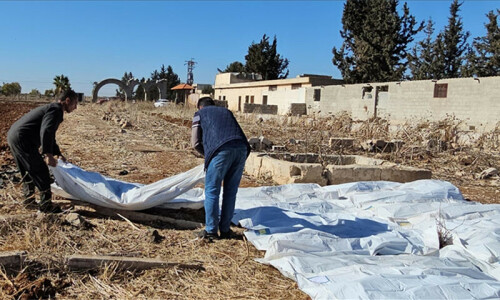THE title, like the man, does not brook argument The Strategic Victory. When it comes to memoirs some leaders tend to favour metaphor or vagueness but Fidel Castro likes to get to the point.
Cuba's retired president is about to publish a first volume of memoirs, the style and content of which seemingly owe more to Julius Caesar than Tony Blair or George Bush.
The 83-year-old's opening volume, due out next week, focuses on his guerilla campaign against Fulgencio Batista's army in the Sierra Maestra mountains in 1958.
Over 25 chapters Castro recounts, using maps, photographs and diagrams, how his outnumbered rebels routed the dictator's better-equipped force and paved the way for their triumphant march into Havana on Jan 1, 1959.
“The defeat of the enemy offensive after 74 days of incessant combat marked a strategic turning point in the war,” according to excerpts from an article Castro published in a state website this week.
As well as the casualties he details the type and number of guns, mortars and tanks captured and destroyed. “With these events the guerilla liberation opened a new phase.”
One of the titles Castro discarded, because it would have sounded like “science-fiction”, was 'How 300 Defeated 10,000'.
The memoir's dry detail, military focus and victorious arc evokes Caesar's The Conquest of Gaul but critics must await the full volume before deciding if it matches the Roman's literary merit. By contrast, Bush's memoir — Deciding Points, and due out in November — will focus on the former president's battle with alcohol, the 2000 presidential election and 9/11. Tony Blair's imminent tome, A Journey, is expected to settle some scores with Labour rivals.
Castro, presumably spared pressure from any publisher to spice up the text, is not thought to have delved into tensions between his brother Raul, Che Guevara, Camilo Cienfuegos and other commanders.
But in what sounded like a grumpy concession to market demand, the grizzled communist did include a short, personal section on his youth “I did not want to wait to respond to the numerous questions about my childhood, adolescence and youth and how I became a revolutionary and armed combatant.”
Castro wrote the manuscript after a stomach illness forced him to step down from the presidency in 2006. Though officially retired he has recently returned to the spotlight with public appearances.
Simon Reid-Henry, author of Fidel and Che A Revolutionary Friendship, welcomed the commandante's book but questioned its focus. “History is such a closely guarded thing in Cuba that these memoirs may well bring new documentable material to light.”
— The Guardian, London












































Dear visitor, the comments section is undergoing an overhaul and will return soon.